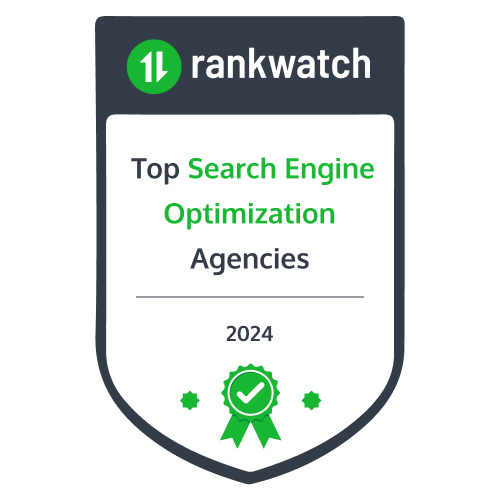Top 20 SEO Traffic Engaging Myths Everyone Should Know About
SEO is critical for increasing a website’s online presence. We’re all aware of it.
SEO can propel your website to the top of the SERPs or, even better, to position zero.
At the same time, most consumers are apprehensive about using SEO services because they fall into the traps of SEO fallacies prevalent in the marketing sector.
Such misconceptions prevent people from deciding to use SEO services.
From SSL certificates to URL optimization, check out these 20 SEO myths and truths to be sure you’re on the right track.
So, let’s get started!

Top 20 SEO Traffic Engaging Myths Everyone Should Know About
This field is similar to popular subjects that fade as time passes. As a result, SEO misconceptions grow as the trend ages, yet individuals continue to practice since it is still popular.
So, look at the 20 most prevalent SEO fallacies you should avoid and how they affect your SEO efforts.
- Penalty for Copying the Information
Duplicacy is a sin in and of itself, a form of inferiority, a second-rate sensation of possessing anything. Copying anything is equivalent to stealing someone’s idea and competence and offering the same information differently.
- Paid Advertising by Google Boosts Rankings
Google’s paid marketing campaign and organic search results are two distinct entities that operate on two different concepts. You are paying Google to have your website appear at the top of the SERPs.
- Google Values Domain Authority
Domain authority is the trust that Google bestows on you for your website’s overall quality of work and maintains its prominence. Previously, Google used to assess a website’s performance using an algorithm known as PageRank on the toolbar, which displayed a score ranging from 0 to 10. A higher score indicates that the web page has more authority.
- Google Has a Search Engine Ranking Algorithm
We don’t intend to pick on Google, but there isn’t just one algorithm. This kind of thinking overlooks the complexity of Search and hence SEO.
- SEO Research Shows How Google Ranks Content
SEO studies are undeniably enticing, as is the promise of having evaluated hundreds, if not millions, of data points. There are “around 200 ranking criteria.” So, how do you build up control to separate them effectively? Even if possible, ranking criteria do not exist in a vacuum. As a consequence, any outcomes would be manufactured.
- SEO Is No Longer Relevant
Because of the infinite complexity of search and the scarcity of credible SEO research, you may assume that SEO is dead or, at the very least useless. That could not be farther from the truth.
- Backlinks are Everything in SEO
A subset of SEOs believes that backlinks can fix all of their problems. “There’s a lot more to search than simply backlinks,” though.
- Link Juice is Everything in SEO
Okay. Maybe it’s not about backlinks, as Google doesn’t count them. Then it’s all about the juice you receive from your connections.
Wrong. Forget about this so-called link juice. It’s most likely outdated, incorrect, and misleading.
- Educational Links are More Valuable
If it isn’t quantity, then it must be quality, and here is when educational institution linkages shine since everyone knows that. Educational links are more valuable. NOT! If you flood academic sites with links, they will most likely disregard them.
- Longer content ranks higher
This is a frequent misconception and one of the SEO myths that everyone believes: the longer the content, the higher its ranking chance. It is just a connection discovered by studying the top-ranking articles, which are typically 1500 words long.
- Security? I Don’t Need an SSL Certificate!
Google said in 2014 that they wanted “HTTPS everywhere.” It was only designed to be a mild signal at the time and only impacted a limited number of locations. According to Search Engine Land, sites having an SSL certificate (HTTPS) were given a ranking boost, while those without it were penalized. For better authentication and security, a site owner should go with EV SSL cert. There are many low priced or cheap EV SSL certificates available that can help you protect your site.
Google may raise the signal’s value, so be ready even though it’s too soon to determine whether this will affect your search ranking.
- Exact Match Domains Rank Higher
Is this sort of website still being created? Let me clarify the air in case there are any. There are no “extra benefits to rank for keywords.”
- The Importance of Keywords in URLs
Nope. Look at any great website, and you’ll see that it ranks highly for hundreds of keywords that aren’t in the URL.
No, domain age has no bearing—enough of it.
- Domain Authority is a Factor in Ranking
To be clear, Google does not utilize Domain Authority while crawling, indexing, or ranking search results.
- E-A-T is a Factor in Ranking
No, not because E-A-T may be directly measured and hence rated.
- Social Signals Influence Ranking
There are several advantages to advertising your material on social media. Search engine optimization isn’t one of them.
- The Importance of Content Quality is Overstated
You may disagree with Google on what constitutes excellent material but be assured that their goal is to provide the best experience possible.
- Increased Keyword Density Improves Ranking
No, Google does not rank content depending on how often a word is used. As a result, just adding additional keywords will not increase your position. The concept that there is a mystical number is ridiculous.
- LSI Keywords Aid in Ranking
We often question who created this story and developed that name. Because LSI keywords do not exist, they cannot assist you in ranking. Really!
Bottom Line
Like all other myths, SEO myths result from believing and will live on in the subconscious mind of every user. However, we must refute these SEO misconceptions to avoid interfering with the optimization procedures and to focus on developing excellent SEO content. To reach your objectives, you should buy SSL certificates, and avoid SEO fallacies damaging your process, development, company, or credibility.




